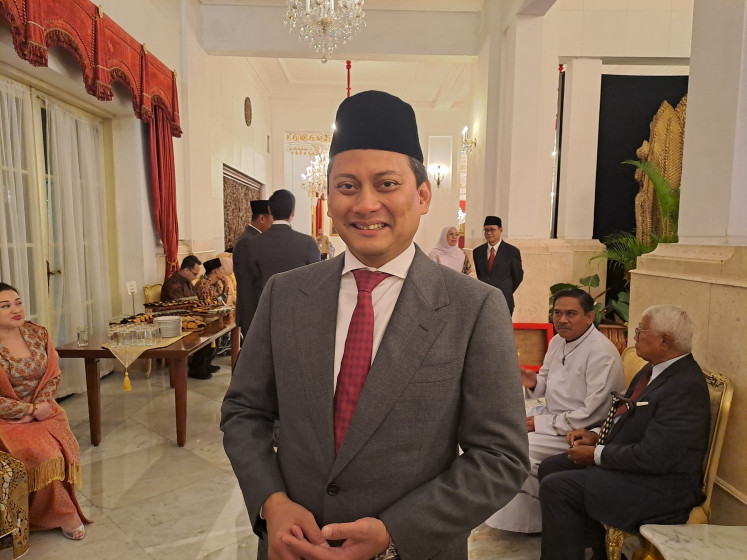Popular Reads
Top Results
Can't find what you're looking for?
View all search resultsPopular Reads
Top Results
Can't find what you're looking for?
View all search resultsJapan, US agree to boost global alliance reach in security, trade
Japan and the United States agreed Tuesday to boost their alliance through increased defense cooperation to contribute to peace and prosperity beyond the Asia-Pacific region at a time of growing Chinese military might and the looming threat of a nuclear North Korea
Change text size
Gift Premium Articles
to Anyone
J
apan and the United States agreed Tuesday to boost their alliance through increased defense cooperation to contribute to peace and prosperity beyond the Asia-Pacific region at a time of growing Chinese military might and the looming threat of a nuclear North Korea.
'We recognize that the security and prosperity of our two countries in the 21st century is intertwined, inseparable, and not defined solely by national borders,' according to a joint statement released after a summit between Japanese Prime Minister Shinzo Abe and US President Barack Obama at the White House.
The two nations were also on the same page on the importance of swiftly concluding a US-led Pacific free trade framework, apparently in the face of the growing influence of China.
'Today, we turn a new page in the history of the Japan-US alliance,' Abe said at a joint press conference following the summit, which took place a day after the two countries updated their bilateral defense cooperation guidelines for the first time in 18 years.
Standing alongside Abe, Obama said that with the new guidelines, Japanese and US forces will be 'more flexible and better prepared to cooperate on a range of challenges from maritime security to disaster response' in the Asia-Pacific region.
Abe said the guidelines are expected to 'heighten deterrence' in contributing to regional peace and stability. Updated at a time when China's growing assertiveness at sea and in the air is fanning concerns in the region, the new guidelines expand the scope of Japanese Self-Defense Forces' operations in the framework of the alliance.
'As we strengthen an alliance that has become global in reach, the United States stands resolute and unwavering in all of its commitments under the US-Japan Security Treaty,' the joint statement said.
The US pledge to defend Japanese-administered territories including the Senkaku Islands, in line with Article 5 of the treaty, was reiterated by Obama at the joint press conference.
The Senkakus ' which China claims and calls the Diaoyus ' in the East China Sea have been a lingering source of tensions, as has China's recent muscle flexing in the South China Sea.
'State actions that undermine respect for sovereignty and territorial integrity by attempting to unilaterally change the status quo by force or coercion pose challenges to the international order,' the joint statement said in a veiled reference to China.
Obama said the United States and Japan 'share a concern about China's land reclamation and construction activities in the South China Sea' and both are committed to 'freedom of navigation, respect for international law and the peaceful resolution of disputes without coercion'.
Turning to the US-led Trans-Pacific Partnership (TPP) initiative, the two nations vowed to 'work together to achieve a swift and successful conclusion to the broader agreement,' according to the statement.
Abe welcomed the 'significant progress' made so far in bilateral negotiations on the TPP framework, and said Japan and the United States will 'lead the final-stage negotiations' toward an early conclusion of the TPP.
They also issued a separate statement on the Treaty on the Non-Proliferation of Nuclear Weapons and called for a nuclear weapon-free world, mindful of the 1945 US atomic bombings of Hiroshima and Nagasaki, which they said 'will be forever engraved in the world's memory.' The statement also said the two countries 'remain committed to a diplomatic process to achieve North Korea's complete, verifiable and irreversible denuclearization.'
Referring to Japan and the United States as former foes that have turned into strong allies, cooperating on a range of issues including fighting terrorism and climate change, the joint statement said Japan-US ties are a 'model of the power of reconciliation.'










